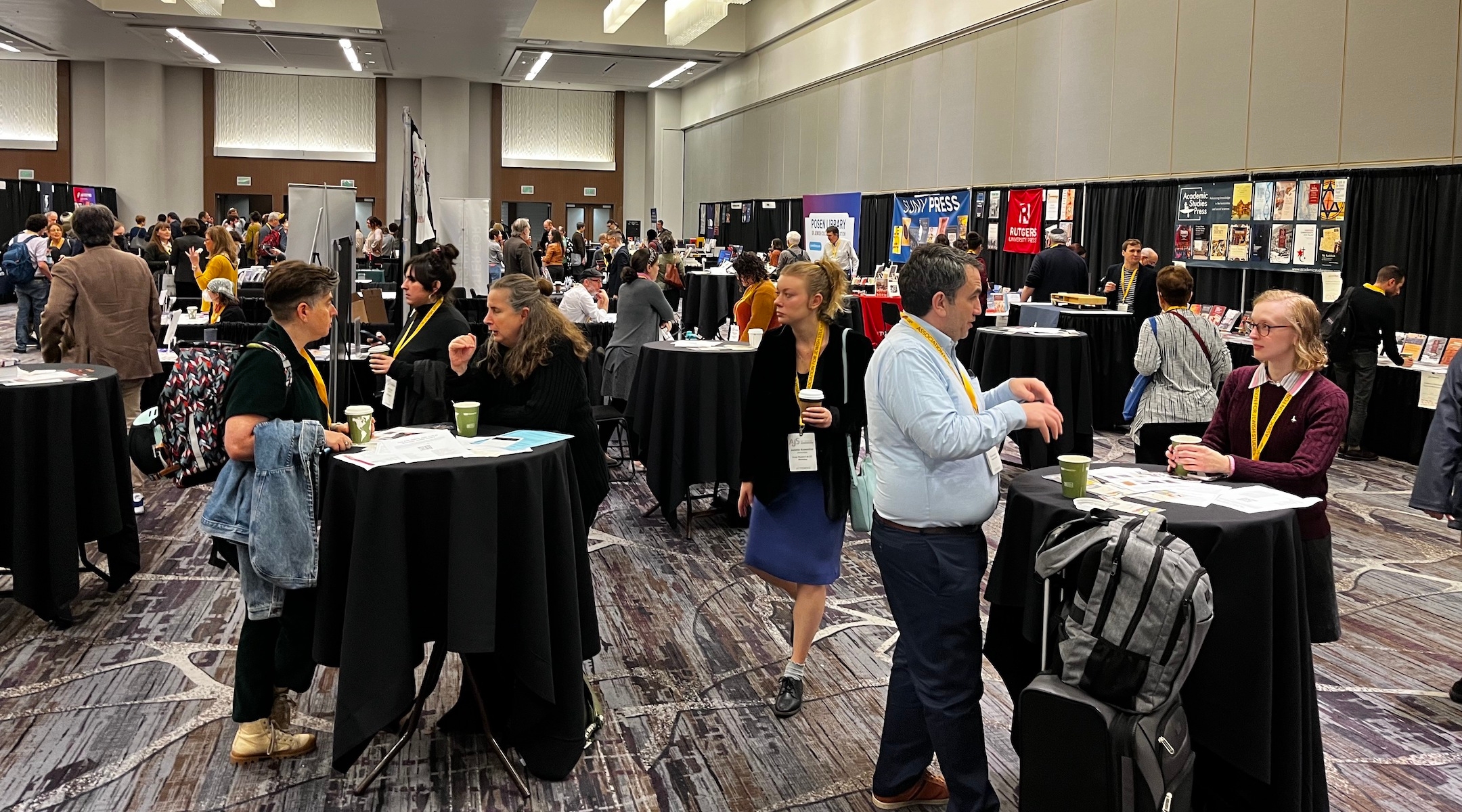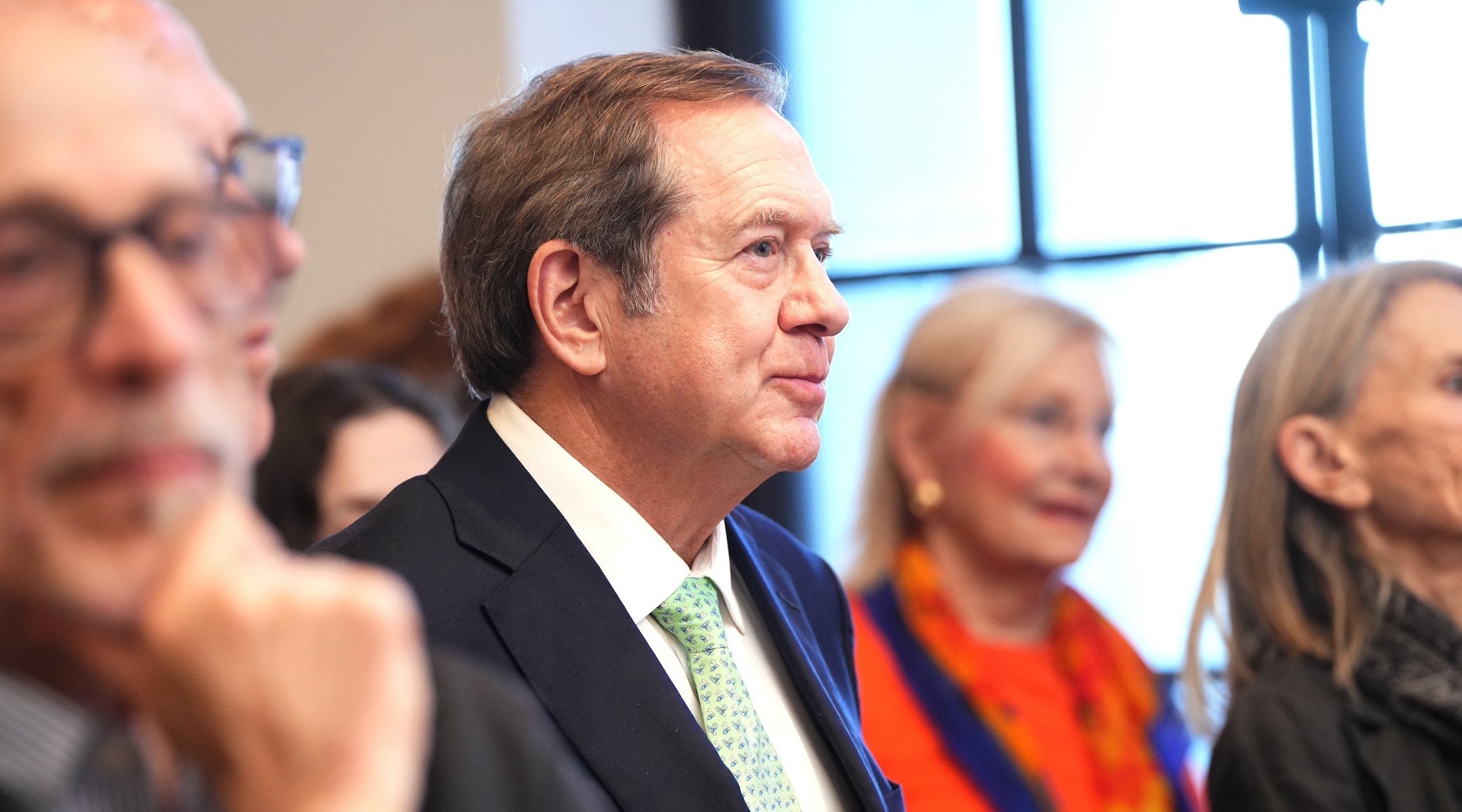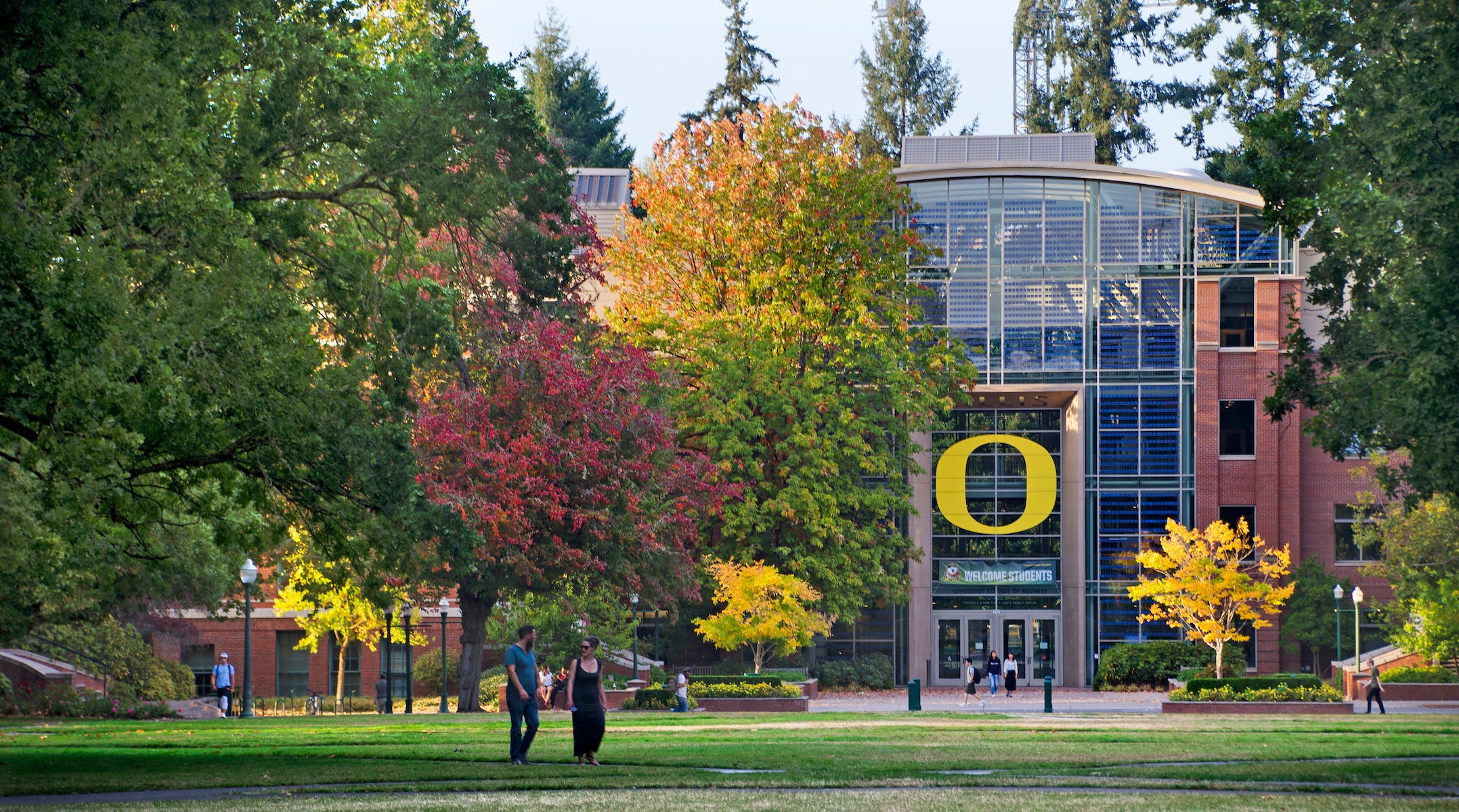Dozens of Jewish studies scholars from across the world have kicked off the fall semester by sending an unusual letter to leaders of the University of Oregon, one with a stinging accusation.
“Why don’t UO’s administrative leaders want UO students to learn about Jews?” the scholars wrote to Oregon’s president, provost and board of trustees on Aug. 24. “Why don’t they want UO faculty to study Jews?”
The letter — whose signatories include faculty chairs and directors at more than 100 schools including Harvard University and the Hebrew University of Jerusalem — comes as Oregon prepares to announce sweeping cuts to its humanities programs to curb what it says is a $30 million budget deficit.
Exactly what will be cut is not clear — Oregon has said only that departments should be prepared to trim their budgets by up to 4% — but faculty members say they are convinced that Jewish studies offerings will end up on the chopping block. They say proposed cuts to other departments would have a trickle-down effect on Jewish scholarship at the blue state’s flagship public university, where Hillel International says more than 2,400 Jewish students are enrolled.
“This is an indirect dismantling of Judaic Studies,” said one faculty member, who requested anonymity out of concern for their job. “They will make it impossible to keep Judaic studies and Holocaust studies running, because core faculty will be laid off.”
Other schools have also recently announced sweeping budget cuts, the result of curbed federal humanities funding under the Trump administration and other political and financial pressures on higher education.
But only Oregon’s cuts have so far ignited a specific frenzy over the future of Jewish studies. The school’s faculty union, which is mobilizing heavily against the administration including with rallies, has listed Judaic Studies and Holocaust Studies among “the specific programs rumored to be under fire.” On Friday the union held what local outlets described as a “testy” Zoom question-and-answer session with the school’s president and provost.

Members of the Association for Jewish Studies gathered for the organization’s 55th annual conference, held in San Francisco, Dec. 17-19, 2023. (JTA photo)
Support has flowed from afar. The president of the Association for Jewish Studies, which shares a major donor with Oregon’s program, signed a letter delivered to the president and provost urging that Judaic Studies and related programs be spared. A similar letter from the Genocide and Holocaust Studies Crisis Network also outlines fears that those programs are at risk.
“There will be none of us to teach these courses,” Deborah Green, a Hebrew language and literature professor and the former director of UO’s Judaic Studies program, told JTA. On the school’s leadership, she said, “They’re always supportive of Jewish students. But how can you be supportive of Jewish students if you stop teaching classes in Judaic studies?”
A university spokesperson cautioned against jumping to conclusions about the impact of potential cuts, saying that the school is embarking on a “consultative process” with faculty and has not yet finalized the cuts, which are expected to be announced on or around Sept. 8. The statement did not mention any specific programs on the chopping block and criticized what it characterized as “speculative reporting” on the issue.
“Any reports suggesting that decisions are final are inaccurate and premature and may be harmful to many in our community,” the statement reads. “We recognize that this is a difficult period; we ask that outlets refrain from speculative reporting at a time when confidentiality, consultation and care for our community should be prioritized.”
One influential Jewish voice who has the ear of Oregon’s president is flatly denying the faculty claims that Judaic studies is under threat.
“I don’t think it’s going to affect our programs at all,” Jordan Schnitzer, a Portland real-estate developer and major donor to the university, said in an interview a day after speaking with the school’s president about the cuts. Schnitzer’s family, in addition to endowing Oregon’s Judaic Studies program, also gave $25 million to the school in May to endow its new Schnitzer School of Global Studies and Languages.
Schnitzer is also a large donor to the Association for Jewish Studies. Asked specifically whether Judaic studies or its faculty in other departments at Oregon are at risk, he called such reports “misinformation” generated by “certain unions and other organizations.”
He declined to comment further before the university issued its own statement, but he did criticize recent fundraising efforts by its Judaic Studies program, which he described as “a model of what not to do.” (The program’s current financial liaison told JTA it has “flourished” and is “the only program at UO that is financially self-sustainable,” citing several recent grants it had received with the intention of hiring new faculty.)
But faculty members aren’t convinced. Because Judaic Studies at Oregon is a program, not a department, all its professors are affiliated with other departments — and it’s those departments that are under threat, the faculty union says.
Those include the religion department; classics; Russian, East European and Eurasian studies, and German and Scandinavian studies. The latter two jointly house the school’s endowed chair of Holocaust Studies, the only such faculty member at Oregon to have the specialty, whose hiring, faculty said, was meant to herald an expansion of that scholarship at the school. Established in 2022, the Holocaust Studies chair was endowed by the family of Arthur Mokin, a codebreaker during World War II who went on to become a documentary filmmaker.
“I knew Arthur. I planned his funeral and I had the shiva lunch at my house,” Green, who also helped arrange the endowment, told JTA. “Arthur would just be furious.”

Jordan Schnitzer, a Portland real-estate developer and major donor to the University of Oregon, called reports of deep cuts to its Jewish Studies program “misinformation” generated by “certain unions and other organizations.” (Jared Siskin/Patrick McMullan via Getty Images)
No assurance has yet been given to the Judaic Studies-affiliated professors at those departments that their jobs would be protected in the event of cuts, faculty members said. And even professors whose positions do not seem to be at risk said their program’s efforts to teach subjects such as the Israeli-Palestinian conflict, Yiddish and medieval Jewry would be severely jeopardized. (The program offers a major and minor, and several study-abroad and internship opportunities, including a partnership with Tel Aviv University. Around 30 students are majoring or minoring in Judaic Studies currently, according to faculty; the university’s official numbers list 15.)
“Nobody’s targeting Judaic studies out of antisemitism or something like that. These are all byproducts of other things,” said David Luebke, a history professor at Oregon who also teaches Judaic studies and is a leader of the faculty union. “If all those people go, if you’re a kid at the University of Oregon and you want to learn about Buddhism or you want to learn about Islam or you want to learn about Judaism, you’re going to be out of luck.”
He added wryly, citing reports of which religion-focused positions would survive the cuts, “You’ll still be able to take courses on the history of Christianity.”
“I am safe for now,” said Monique Balbuena, whose affiliation is with the comparative literature department and who sits on the steering committee for the national Faculty Against Antisemitism Movement founded after Oct. 7. “But everyone is feeling uncertain and vulnerable.”
The question of what happens to Jewish studies more broadly, and related disciplines such as Israel studies and Holocaust studies, has become thorny in the wake of Oct. 7 and the cascade of anti-Israel sentiment unleashed on college campuses.
As universities dealing with outbreaks of antisemitism have cast about for ways to improve the climate for their Jewish students, funding and supporting such scholarship is often raised as one possibility — in part because it provides non-Jewish students with the opportunity to learn about Jews and Israel. At the University of California, Berkeley, a faculty revolt over antisemitism was quelled by promises from the school to create a new Israel studies minor.
At the same time, some Jewish studies faculty have been embroiled in controversy as pro-Israel funders and activists have insisted their views, which tend to lean progressive, do not reflect the mainstream Jewish community.
Regardless, such disciplines are vulnerable in a moment when the humanities, and higher learning in general, face drastic cuts, and when the Trump administration has made diversity-focused programming a particular target of its ire:
- Recently the University of Chicago said it was pausing admissions to several humanities graduate programs for the next academic year, including Middle Eastern studies, several of whose faculty focus on Judaism and Israel.
- Other schools across the country with dedicated Jewish studies programs or centers — including Stanford, Princeton, Cornell, Northwestern, the University of North Carolina and the University of Nebraska — have issued or announced plans for mass layoffs and funding cuts this summer. Some of those schools have landed in the Trump administration’s crosshairs over their handling of antisemitism.
- Ohio University has announced a proposal to merge its undergraduate degree in Religious Studies — a program that includes an option to pursue a certificate in Jewish studies — with other degrees as part of a larger effort to adapt to new state higher education laws on low-enrollment programs. The proposal is awaiting state approval.
- Last year the University of Iowa, facing both federal and state pressure, proposed to merge its Jewish studies certificate program into a consortium program called the “School of Social and Cultural Analysis,” along with several other disciplines including gender and women’s studies. That proposal was rejected by its state board of regents. One Jewish student at the university has alleged the political climate has made life more difficult for Jewish students and scholars there, writing in the Des Moines Register, “I have personally seen professors unwilling to post lecture slides for students to review outside of class, even on subjects like the Holocaust, out of fear of retaliation from the university.”
As the scholars’ letter to Oregon’s leaders argues, cuts in and around the discipline represent an uneasy prospect for the future of Jews in the academy. Despite the lack of clear information about the nature of the cuts, they are leaving nothing to chance.
“What is needed today is not the destruction but the intentional strengthening of Judaic Studies, through the cultivation of all those fields that constitute it,” the letter reads. “Universities, especially public ones, have a heightened obligation to foster historical literacy and critical inquiry in an alarming era of rising bigotry, including racism, Islamophobia, and antisemitism.”
JTA has documented Jewish history in real-time for over a century. Keep our journalism strong by joining us in supporting independent, award-winning reporting.






